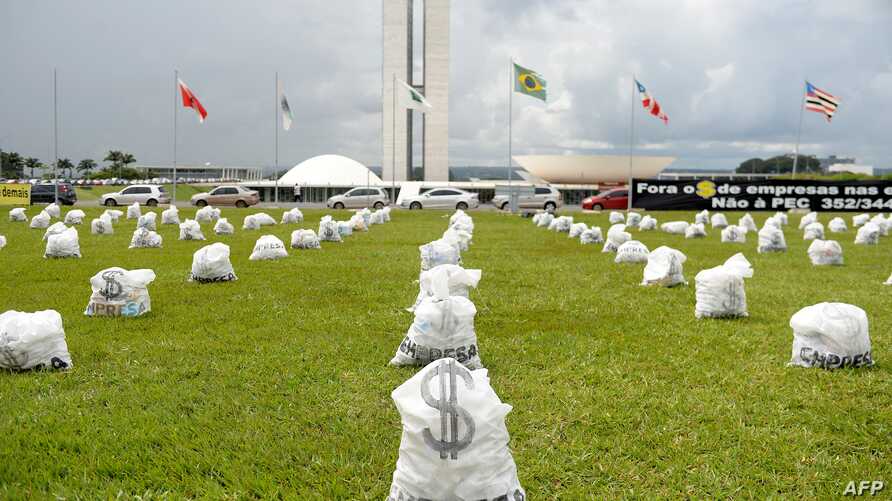RIO DE JANEIRO, BRAZIL – Faced with unprecedented economic sanctions against Russia, tightening regulations, and a major Covid lockdown in China, investors redirect their resources, and the Brazilian market is becoming attractive.
It takes one ship getting stuck in the Suez Canal, a significant corridor for container ships, and international logistics grind to a halt. It doesn’t work that way for money transfers. Like a river, when something impedes the flow of capital in one part of the globe, it soon finds a new route to follow.
This happened with the outbreak of war in Ukraine. Many billions were diverted in the face of the unprecedentedly far-reaching economic sanctions imposed by the West on Russia, which had been a significant investment destination among emerging markets until it invaded its neighbor.

A large part of these resources came to Brazil, which seemed to be the least problematic alternative at that moment of the events. The effects were soon felt in the prices of the Brazilian financial market. Stocks and the real gained as more dollars flowed, but experts warn that this window could quickly close.
“The stocks of Brazilian companies, many linked to agricultural and energy commodities, have proven attractive,” says Roberto Dumas Damas, professor of international economics at Insper.
CHIP CRISIS
Rising interest rates have helped Brazilian bonds become cheaper. In tandem with record stock market prices and despite occasional corporate governance shakeups at top companies such as Petrobras, the Brazilian real also appreciated against the dollar. Since its peak in the first week of January this year, the value of the American currency in Brazil has fallen by more than 17%.
With three decades of experience in the global financial market and a direct presence in Asia, Damas traces the path capital took in search of a new haven when Russia was no longer an option. At the same time, all of Eastern Europe was virtually wiped off the map by emerging market fund managers who ran away from the risks.
In the Americas, Chile and Colombia would be attractive options if their markets could handle the large sums associated with the movements of these global funds without price imbalances.
Mexico would be a strong competitor for Brazil in the dispute for these billions. Still, with an economy based on the assembly of industrial products from components from other parts of the world, Damas believes that the crisis of global shortages of production inputs as crucial as chips has hurt the owners of the money.
TAIWAN RISK
This brings us back to China, where repeated blockages since the advent of Covid have affected countries dependent on its supply and deterred investors interested in increasing their resources as the world’s second-largest economy booms.
Swiss bank Julius Baer this week distributed a special report to its clients on the risks facing the Chinese economy, pointing to the escalation of regulatory intervention in business dynamics and high uncertainty about the course of China’s relations with the West, significantly if Beijing advances on Taiwan the way Moscow is marching on Ukraine.
In the text, the Institute states that investing in China is still possible but that its assets are no longer the essential core for diversifying a global portfolio.
Although this scenario makes Brazil seem like a convenient alternative, the country is not the “ball of the hour,” as it is called in the market, much less can it be considered a haven for international resource managers.
To keep all the money that came here earlier this year, the country still has a lot to prove, according to Esteban Polidura, director of products and solutions for the Americas at Bank Julius Baer.
“The question is whether the high-interest rates will curb inflation and not hurt economic growth even more,” he asks, agreeing that the geopolitical situation has favored Brazil.
Damas fears that the tide will turn in mid-June. This is when managers close their annual accounts and, to reach their targets, tend to sell shares to make a profit.
“The guy has already made 20% in dollars and thinks, ‘I’ve already had my year,'” says the Insper professor, referring to the increase in value of investments in the Brazilian market at the beginning of 2022.
He fears that at least much of the capital that has recently entered the country will retreat to the safety of U.S. government bonds, pointing to higher interest rates to combat inflation, which is also accentuated in the United States.
HEALTH AND NUTRITION
Staying in Brazil and paying for the strong emotions promised by a polarized electoral process does not seem enticing to foreign investors. If there is indeed a flight from the country, prices on the Brazilian stock market tend to give back at least a good portion of the gains, while the dollar would rise again, bringing inflation in its wake.
But some believe that this reflux will not happen, at least not with the intensity of the inflow.
For Banco do Brasil’s Vice President of Wholesale Banking, João Carlos Pecego, the shift in global liquidity caused by the war in Ukraine is contributing to a significant change in priorities brought about by Covid.
“The pandemic has made it clear that civilization is essentially after two things: Health and food. And Brazil is very well positioned in food production,” says the BB executive, who has seen growing investor interest in the country in recent months. “In the last 60 days, meetings with prominent businessmen from abroad have tripled.

